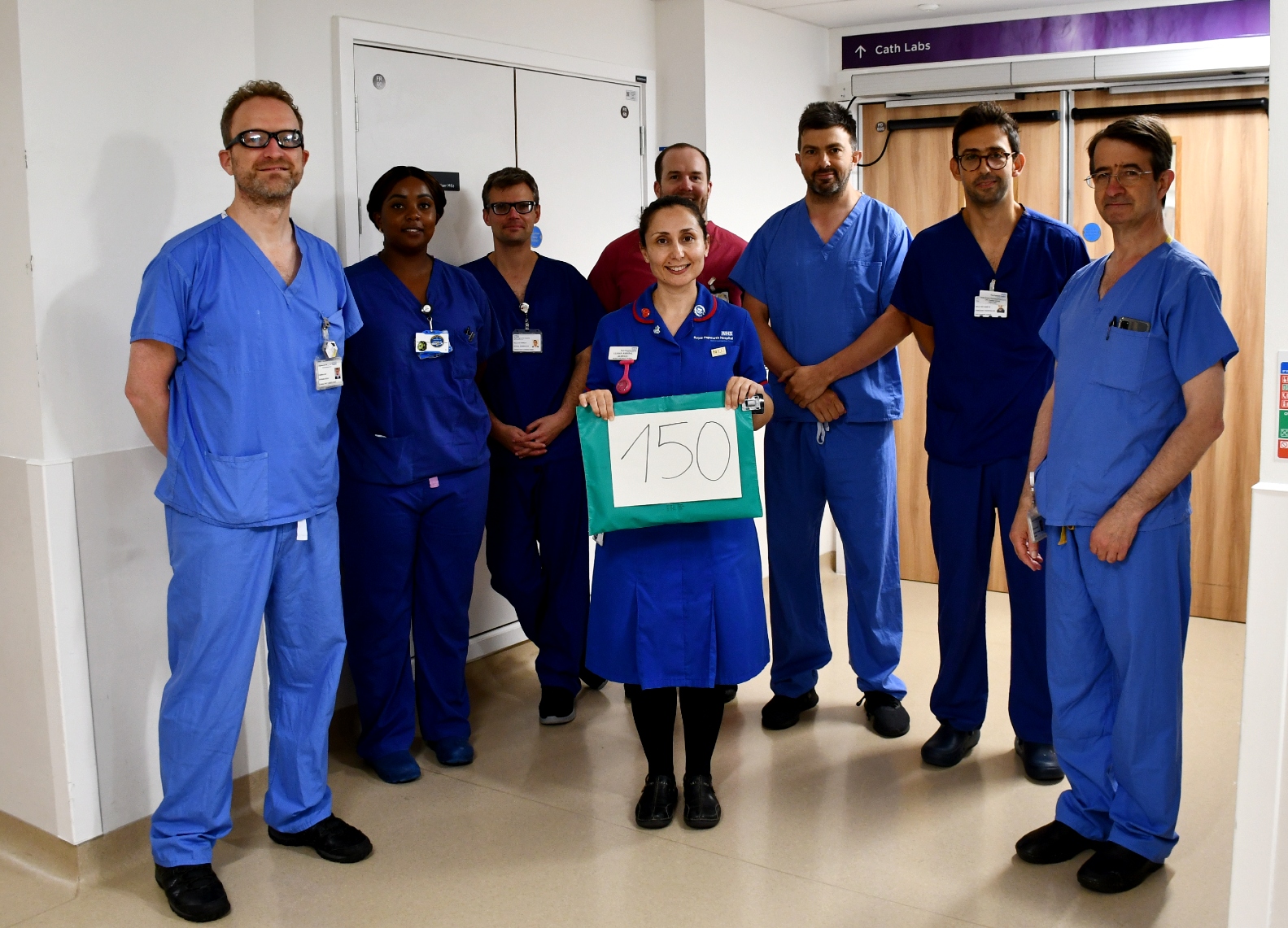A pioneering procedure to treat chronic thromboembolic pulmonary hypertension (CTEPH) has been performed on the 150th patient at Royal Papworth Hospital.
CTEPH is a rare form of pulmonary hypertension that occurs in 2-4% of people when blood clots block-off the arteries of the lungs following a pulmonary embolism.
Balloon pulmonary angioplasty (BPA) is a procedure in which a tiny balloon is inserted into the blood vessels of the lungs and inflated to around the size of a pea, pushing the blockage aside, restoring blood flow to the lung tissue.
Royal Papworth Hospital was commissioned by NHS England in 2018 to provide the BPA service across the UK, having carried out the first case in 2015.
Thomas Heywood, 68, a retired farmer from Buxton in Derbyshire, recently became the 150th patient to benefit from this treatment, after suffering for years with extreme breathlessness.
Each patient needs to undergo between two to four procedures spaced several weeks apart; as well as treating the 150th patient the hospital has also performed its 400th BPA procedure.
“It is extremely gratifying when patients tell us that BPA has made a difference to their lives by improving their symptoms and quality of life,” said BPA specialist nurse Liliana Almeida.
“At the end of day this is why we do what we do: for our patients. I hope that the service continues to grow so we can treat more patients and improve many more lives.”

BPA procedures are performed by a team in the catheter laboratories
If left untreated, the blood clots for people with CTEPH build up in the blood vessels of the lungs which then become permanently scarred with narrowing and decreased blood flow.
This results over time in increased pressure and resistance to blood flow in the lungs leading to pulmonary hypertension and right heart failure.
When severe, this causes extreme breathlessness, exercise limitation and reduced life expectancy.
There are now two treatment options for CTEPH, both of which are only performed at Royal Papworth Hospital.
Pulmonary endarterectomy (PEA) surgery is suitable for approximately 60% of patients, a 10-12 hour operation during which time the clots are removed from deep inside the lungs.
For patients like Thomas who are deemed unsuitable for surgery, either because they are too high risk or the clots are too deep, BPA is an alternative option.
Dr Stephen Hoole, Consultant Cardiologist at Royal Papworth Hospital, said: “Through a strong, collaborative, interdepartmental approach at Royal Papworth and with the support of our referring national pulmonary hypertension centres, the BPA service has been able to achieve impressive results in the past seven years.
“We have been able to relieve the symptoms of breathlessness and improving the quality of life of patients with inoperable CTEPH, whilst doing so safely and without major complication.”

The service falls under the Pulmonary Vascular Diseases Unit
The service is part of the Pulmonary Vascular Diseases Unit (PVDU) at Royal Papworth Hospital, which cares for patients with pulmonary hypertension.
BPA usually involves up to four treatment sessions in a catheter laboratories, each lasting up to two hours, spaced four to six weeks apart.
The procedure is performed under a light sedation and local anaesthetic, helping patients to recover more quickly.
“I am so very proud of being part of this team,” added Liliana.
“It is definitely a collaborative effort from PVDU, cardiology, the cath labs, 4 South Ward and all our referring PH centres.”
